#like dude you can enjoy a style of architecture without it being That Deep
Text
still not over the absolutely braindead take that "if you say brutalism looks dystopian, you care more about your aesthetic than people having homes!!!!"
like
can't criticize Shein or you must want their workers to be unemployed
oh you don't like that restaurant? guess you want the people eating there to STARVE
fuck both roses AND bread; nutrient-dense gray EnergyCubes would keep you alive so wishing for a better sensory experience is basically capitalist bootlicking
(I agree that considering Soviet-era brutalist apartment buildings in the context of "shit we need housing; put something up quick" is important for those specific structures- though I think that can coexist with "wow that's ugly" -but. this person did not stop there)
#hot takes#the discourse#the main brutalist structure in my area resulted from tearing down an entire neighborhood of working-class homes and businesses#and it's a government building- not residential or commercial#so I guess now YOU ~care more about your aesthetic than people having homes~#like dude you can enjoy a style of architecture without it being That Deep#I don't think everyone who dislikes High Victorian Addams Family Nonsense (my favorite) is a shill for big developers#(except the developers and house-flippers; fuck them)
158 notes
·
View notes
Note
Has everyone asked you about Jupiter Ascending?
@godzillaapproved
Yo, I ought to apologize to you for taking hella long to properly respond to this. It’s holiday season over thisaway, sure, but I ain’t nearly vain enough to assume just anybody gets why that can suck up a dude’s time. Reckon I’m sure there’s tons of national celebrations all over the world I’d never know about otherwise. Bah, I say! Going out and socializing is one of the few things more overrated than all those shitty Apple products. But yeh, in my case it was less the celebratory spirit of holiday festivities and more a sudden spike in workload, so my mental energy was roughed up by that, plus I was doing a new workout at the same time. Thus, whatever free time I had left was spent obsessively hammering away at the Steam sale items I’d recently bought. It’s like a coping mechanism. Well, that and cheap wine anyhow.
Regardless, regardless—holy shit what an obnoxious fucking way for me to open this up—this Ask of yours came at an unusually coincidental time. A friend and I have been meeting up every weekend to watch like semi-recent crappy movies just as a way to enjoy a bad drink and a good laugh. She likes to laugh, and I like to drink, so it works out. After working our way through every Transformers film by Michael Bay, then Cameron’s Avatar, Terminator: Genisys, The Amazing Spider-mans, Spielberg’s Crystal Skull, Ready Player One, and some of the more abysmal DC films, our last escapade into nonsense was the estimably hilarious Gods of Egypt, which reminded me of one of those excremental quicktime-event video games. You know, like Detroit Becomes Human or some shit like that (Oh wait, is it Detroit Coming of the Humans? Meh).
As luck would have it, like, the day before you asked me about it, the next film at which I suggested we take a crack was the Wachowskis’ own Jupiter Ascending, which my friend had not seen at that time. Nor had I, since first viewing it in theaters.
>>SPOILER WARNING: IF YOU CARE ENOUGH TO, UH… YOU KNOW, CARE
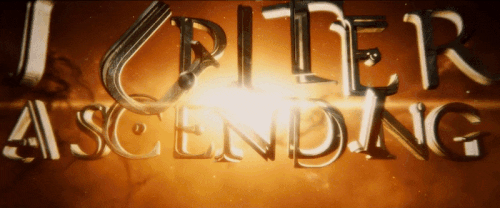
I was intrigued to give this movie another go. It’s struck me that I’ve got an odd streak of pleasantly enjoying movies a lot of people can’t seem to stand, or which some people even hate with utter vileness on the verge of hunting down the producers with a roll of duct tape, power tools, jugs of petrol, and a matchbook. I’ve enjoyed, for instance, Hardcore Henry, Elysium, and Joseph Kosinski’s Oblivion, all of which not one person I know in real life could offer a single word of kindness. After my first viewing of Jupiter Ascending, I was left to consider whether or not it was the sort of movie I should enjoy and allow others to hate and disparage, or if it just wasn’t that good. I recalled leaving the theater with a sort of “Hm” sound, and not much else. But given my history with rooting for an underdog, was I wrong? Is this movie actually good, or cool in some way? I couldn’t defy the sensation that I’d missed something.
The answer, it seems, is more complex than a simple yes or no. Then again, as Mason and Goat Han Solo often remind us, “there’s no nuance on the internet”, so even my assertion there about complexity may be in gross error.
For the unfamiliar, Jupiter Ascending is a science fiction tale with vibes of less-cliché aesthetic choices for its visuals, some cool references to UFO conspiracy theories, and aims at a more expansive universe that would no doubt have been further explored in sequels had this film been better received by audiences and critics. I’ll say outright, it’s a disappointment to me that we weren’t given the chance to see more films in this mythology, because there’s some really cool stuff going on in this weird, imaginative universe. The story centers upon the character of Jupiter Jones (Mila Kunis), an average working-class young woman in Chicago who is shocked to discover not only that aliens exist but that she happens to be the reincarnation of a galaxy owning empress, which entitles Jupiter to ownership of a large portion of the cosmos, the least part of which is Earth itself. But as the Aussies say, something’s a bit suss about the whole affair, and the wondrous glamour of this technologically advanced universe is concurrently party to a dark truth.
An immediately intriguing element of Jupiter Ascending is its attempt to set-up something which, while perhaps greatly inspired by a few other fictional works, is an original property, not a sequel, reboot, adaptation of an existing work, nor a spiritual successor to something else. Rather than merely being intrigued by this fact, I also respect it, because high-concept science fiction films aren’t something a studio likes to go for unless they have a preexisting audience, like adaptations of a book series or something. So it’s always bold when someone can cobble together the resources to really take a chance on something like this, even if it isn’t well received. After all that’s how films like The Matrix, The Terminator, Ridley Scott’s Alien, George Lucas’ Star Wars, and John McTiernan’s Predator come to be in the first place. Another example, I didn’t quite enjoy The Last Witch Hunter, but I recall respecting that film’s risk in its attempt at a new property for similar reasons.
Irrespective of your own personal tastes as a moviegoer and consumer of science fiction, it can’t be denied that the Wachowski’s are measurably talented filmmakers. Their doubtless skill at framing shots, blending effects with reality to present an integrated experience, and choreographing action sequences with such lethal precision it’s always incredible to watch; all of these things can’t be argued, and this attentiveness for the craft is all very present in Jupiter Ascending. Toward the beginning of the movie, there’s an aerial chase sequence that promptly accelerates into one of the most engaging, gripping action sequences in memory, heavily fantastical sci-fi elements intermixed with almost Fast and the Furious levels of insanity. The sense of gripping speed alone as two characters cling to the outer hull of a spacecraft was helplessly intense and left me quite keen to see what else the movie had to offer further down the line.

Additionally we have some awesome art design and stylistic choices regarding the look of this sci-fi universe, both the appearance of aliens and the design of their technology was familiar and unique at the same time. There are beings referred to as “Splices” which are intermixes of humans and various animals, giving some people bestial characteristics which are just weird enough to be cool to me without verging over the edge into absurd territory. There are cybernetic enhancements, gravity boots, phalanx style energy shields, neural synthetic wings, motherfucking jet-bikes of course and, though I never would have dreamed, motherfucking lizardmen! That blew me away, dude. Others may think it’s stupid, but lizardmen are one of my favorite sci-fi/fantasy creatures of all time, and they look so badass in this movie it was unbelievably awesome to realize I was actually seeing a proper lizardfolk on screen. With lizardmen and jet-bikes, Jupiter Ascending quickly marks two-out-of-five on my Generally Awesome Things I Like To See In Science Fiction list. It’s a real list, in my head, I swear.
The starship designs were inspired by art deco architecture in cities like Chicago, lending Jupiter’s cosmos a feeling more of Herbert’s Dune-iverse than something like Star Trek, which I appreciated since we don’t see that type of style quite as much. Top all that off with a fantastic score from Michael Giacchino and you’ve got some great tools to tell an awesome story.
So the thing is, it’s not just skin deep either, while the film does lean heavily on its visuals and action set-pieces, this is a genuinely interesting universe. Michael Bay’s Transformers, for instance, also has cool visuals, some passable action scenes, and dazzling special effects, but is it interesting? The answer is no. Because Bay’s movies, while briefly entertaining, are ultimately hollow. There aren’t any subdermal layers beneath the facade of spectacle. But in Jupiter Aescending there’s clearly something else going on, the touch of true filmmakers for one, yet also the potential for so much more. The groundwork, the craftsmanship and attentiveness is all here. It’s really what they choose to do, or not do, with that potential which ends up disappointing. Not, as in the case of Bay’s movies, the utter lack of potential for greatness from the start.
Though some fandom-card carrying ideologues may acerbically disagree, an acceptably comparable film whose potential for greatness was also mostly wasted for middle-of-the-road mediocrity is the recent Solo: A Star Wars Story, by Disney Interactive– I mean, by Disney behind the appropriated guise of Lucasfilm. Whatever else you think of that film, and while I agree from a mythological standpoint its very existence was in extremely poor taste, the talent, the production value, the mark of the craft was there. None of this was, however, capitalized upon to create anything truly profound. Jupiter Ascending’s unfortunate drawbacks are of a similar form.

I’d like to state emphatically however, I’m not trying to punish the film nor act as its apologist. Reckon I always end up saying this, but I am really just some dude. Sure, I read a lot of books and stuff, but that doesn’t appoint me some grand authority on the subject of fiction. These thoughts I try to convey in my write-ups are meant merely as opinions, framed in the form of investigating the quality of a film or game or whatever. To that end, I’m compelled to side with most folks in that, whatever else its got going for it, there’s some major deficiency holding back Jupiter Ascending from rising to a higher form of entertainment. So if the production values are high, where’s the casus belli all the angry critics are seeing here?
To puzzle that out, we ought first to determine by what criterion a truly good story is shaped. In that regard it’s likely the wisest to begin by reckoning what sort of story we’re dealing with here. Most people are wont to jump straight to the whole Hero’s Journey every dickhead YouTube reviewer read about in some sparknotes book while using the shitter at Barnes & Noble. But Joseph Campbell’s mimetic architecture isn’t the only sort of story that exists, not even in science fiction. Consider, for instance, anything written by H.P. Lovecraft, Darren Aronofsky’s The Fountain, Kubrick and Clarke’s 2001: A Space Odyssey, Jonathan Glazer’s Under The Skin, Philip K. Dick’s various works, Andrei Tarkovsky’s Stalker, Stanisław Lem’s Solaris, Alex Garland’s Ex Machina, or Christopher Nolan’s Interstellar. These stories, while very sci-fi in their scope and measure, are far more introspective, and very contemplative when contrasted against fiction of the more traditional heroic adventure genre. Hell, even Paul Verhoeven’s Starship Troopers while appearing a mindless war movie on its surface is fundamentally a cautionary allegory. While conquering adversity is certainly a theme of its own within each of these stories, the breadth of that adversity’s effect on the narrative varies wildly, as well as the nature of adversity each character must face. Other heavier components, like displacement, post-humanism, philosophical allegory, are also usually present in such stories.
All of this likely seems a bit excessive to point out, but I promise it’ll get relevant later. But, uh… yeh. The next time some liberal arts asshat tries to tell you there’s only one real way a story can go, you can be safely justified in telling them to get bent. I mean read, yeh, tell them to read more shit, and watch more movies. That’d probably be more productive. But also tell them to get bent, the fuckers.
There can also, however, be stories that blend styles. The 2004 rebrand of Battlestar Galactica incorporates several philosophical elements, self-reflective, and meditative thematic ideas into its narrative of what would otherwise be a fairly standard science fiction conflict in outer space. The Wachowskis’ own The Matrix is a perfect example of a classic hero’s journey which also incorporates introspective themes into its lore, plot, and mythology, wherein the internal conflict of the protagonist is just as important as whatever external adversity he is meant to overcome. Where Battlestar Galactica 2004 uses its thematic material to craft a sci-fi adventure story, The Matrix uses a sci-fi adventure story to explore its thematic material. Seen in that light, I think the Wachowskis wanted Jupiter Ascending to have similar weight to its narrative, but they ended up recycling a sort of “human harvest” idea already seen in The Matrix (and arguably done in a more engaging way).
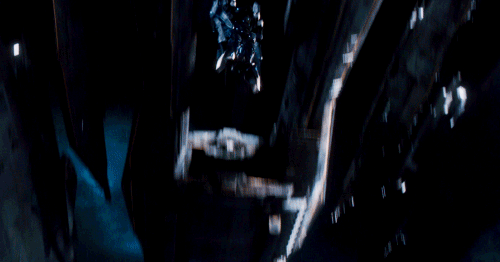
Jupiter Jones herself is a catalyst for an inter-familial conflict within a wealthy interstellar hierarchy. Though alien races do exist, the most dangerous aliens happen to be humans themselves, extraterrestrial humans of course. In Jupiter’s universe, it turns out that the wealthy and powerful have the ability to live forever (an idea also explored in the Neftlix adaptation Altered Carbon), but only by seeding countless worlds with humans, then harvesting these humans like crops and breaking these millions of people down into a sort of primordial youth serum by which the lives of the affluent may be extended.
Advanced genetics in Jupiter’s universe are the highest form of technology, and it is stated in all the cosmos the most sought-after resource is time. This is the reason these advanced humans out among the stars are able to splice human and animal genes, essentially creating entirely new races, and the reason why Jupiter herself is seen as a reincarnation of a woman who once owned countless stars and planets. Genes, to the wealthy and powerful, have a near spiritual significance. Jupiter is referred to as a Recurrence, a person who is long dead but whose gene-print inconceivably reappears in someone who is born centuries or even millennia later. This is seen as a near miracle, and thus is recognized by interstellar law as a legitimate reincarnation, giving this new person the same rights and privileges, and inheriting all the property previously held by the deceased person whose gene print they share.
And that’s where the conflict comes up. Jupiter is sought out by three siblings of the Abrasax family, one of the most elite and powerful families in the universe, of which she is the reincarnation of their mother and thus entitled to re-inherit all of their resources and capital which they currently control. The kids are Kalique (Tuppence Middleton), the well-to-do, but compassionate one, Titus (Douglas Booth), the more two-faced of the three who acts innocent but is clever as a viper, and Balem (Eddie Redmayne), the stereotypical villain of the piece who seems to have nervous ticks and an inability to raise his voice above a certain octave except in times of extreme stress. Of course, since Jupiter’s now meant to control everything they currently own, none of the three Abrasax kids can be fully trusted. Jupiter doesn’t have to face these three one-percenters alone however. She is accompanied by Caine Wise (Channing Tatum) an ex-soldier and wolf-splice, known as a Lycantant, who is hired by Titus to safely retrieve Jupiter from Earth before his siblings can get to her. Caine’s former commanding officer, a bee-splice known as Stinger (Sean Bean) also appears from time to time, as well as officers of the Aegis, an interstellar law enforcement agency.
If you are having a hard time following the characters here, it’s probably because there just isn’t much to any of the characters other than what I’ve already written about them. And therein lies the primary flaw with this film. The characters aren’t interesting, and the greater tragedy is that the characters are written to be uninteresting. Where a ton of care and attention went into crafting the look, feel and depth of the wider universe acting as the story’s setting, the characters within this story are criminally underwritten.
Earlier, I went to great lengths to illustrate the wealth of variety throughout genres of science fiction, just how many different types of stories we might get within this narrative framework. The purpose of explaining all of that to such a degree was meant to show you that not everything has to follow the same narrative flow. Sometimes stories can be more abstract, less character driven, less action heavy. In that regard, a story exemplar like Blade Runner doesn’t really need to have strongly written characters because the interpersonal aspects of its journey are less important than its atmospheric setting and stylistic momentum. The gravitas comes from a different place than in stories which are more character driven.
However, if a story does want to give us something more conventional, then it’s extremely important that the characters are strongly defined, well established and, even if not likable, at the very least interesting. Though a bit out of this wheelhouse, Fitzgerald’s The Great Gatsby is notorious for featuring a dramatis personae of terribly vain, horrible sociopaths, but many of these characters are still written in a way that makes them interesting. Jupiter Ascending fashions itself as an epic space opera, a stylized adventure journey which goes from scrubbing toilets in Irving Park to rocketing through a wider spectacular galaxy. Within that story structure, the characters need to be given their proper attention, especially the protagonist. Only, this is not the case with this movie. In fact in Jupiter Ascending, the characters almost appear as afterthoughts, which is most unfortunate.
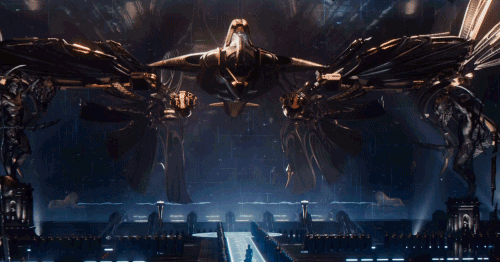
Despite being the protagonist’s love interest, Caine seems to have been given the most depth, as a literal lone-wolf personality, an orphan of a sort, a former soldier disgraced for an act of savagery, who longs to regain his military status as a Skyjacker, and was sprung from a prison called Deadland to rescue Jupiter from the clutches of filthy rich egomaniacs, a class of people he seems to utterly despise. Yet even Caine’s various portions of characterization are never fully explored, and he mostly serves as a vehicle to come dashing in and pluck Jupiter out of trouble over and over again. Secondary characters, other than Stinger (more on him later), are hardly there other than to function as a taxi service or exposition dump where appropriate, which is a shame since some of them have a great look but nothing else going on in the writing department to make them memorable. The Abrasax siblings are basically three different flavors of the same smug Soylent privilege, though Kalique seems to exist only to explain things for the benefit of the audience, and Balem seems to be accidentally memorable thanks to Eddie Redmayne’s unusual performance. Titus has some cool psychotic vibes with his underhanded motivations, slippery silver tongued bastard that he is, but even his role as the trickster doesn’t get its due in the end.
Stinger, Caine’s former commanding officer who is now an Aegis Marshal, is also written slightly deeper than even the Abrasax siblings. He took the fall for Caine’s misstep in the military, so he also lost his wings and was disgraced for it. Despite this, he is willing to help Caine and Jupiter throughout the story, and though begrudged he seems genuinely good at heart. Stinger’s point of interest however comes from his traits as a Splice between human and bee DNA. Yes, this leads to a funny line of dialogue, but there are some great examples of show-don’t-tell with Stinger, in that having bee instincts he seems superhumanly able to anticipate motion and react to it ridiculously quickly compared to most people. This ability gives him an edge in everything from fistfights to navigating massive fields of hunter-killer mines. This is hardly important to the plot, but I thought it was cool since it’s never stated outright, just displayed through his actions. Another example of a great idea that’s mostly left adrift.
Jupiter herself starts out as a typical protagonist for a Hero’s Journey. She’s a Jewish Russian immigrant who leads an unglamorous life cleaning bathrooms and tidying fancy homes for her family’s housekeeping service, apparently has bad luck with romance, and hardly ever has time to really do anything she enjoys. Typically, once these elements are presented, there will also be a revelation of something more intimate about the protagonist, her dreams and ambitions, something she longs to one day achieve, her hobbies or personality, perhaps a personal drawback or fear she wishes to overcome. But the most we get about Jupiter is that she wants to buy back a telescope which was once stolen from her astronomer father by the same thieves who murdered him (which we see early in the movie in an awkwardly directed scene). It’s not made clear if Jupiter herself has a genuine interest in astronomy, nor even what any of her interests happen to be.
This becomes a recurring problem throughout the film. Since no real internal conflict or personality of any kind is established for Jupiter, she isn’t led through any personal journey or self-exploration, nor anything which allows her to grow or evolve as the narrative opens up and accelerates. She’s basically just along for the ride, one of those wrong place wrong time sort of things. Her journey is entirely surface level, external forces dragging her around the stars without her having any real say in the matter nor agency of her own. She as very little idea of what she wants or who she is, from what we can tell, because we have no idea of those things either. Mila Kunis does a fine job with the material she’s given, but the material just isn’t much to run with, and if there is a drawback to her performance as an actress I promise in this case the fault is not with her.
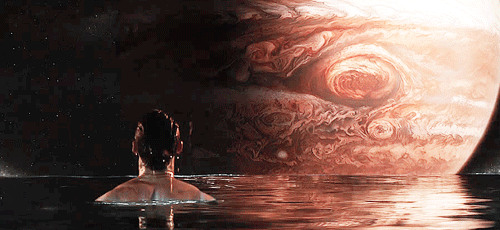
The terrible lack of characterization hurts everything in the movie from its ethical conceits, plot momentum, all the way up to the romance subplot which only feels forced and lacking chemistry because the two leads aren’t properly written. They could have had chemistry, but its difficult for archetypes to interact without endowing them with personality. It’s a fundamental flaw from which all other flaws of the film stem because the personality, the character of the protagonist in this type of story is a fundamental element from which many other elements of the story stem.
Even towards the end, when Jupiter is forced into dangerous heroics and aggressive bravery it doesn’t feel like much of anything because for all we know she was brave all along, or maybe she wasn’t. We’re never given the chance to find out. Her larger moment of heroism comes not in a violent action of conquering the badguy (though she does beat him with a pipe later... in self-defense of course), but in refusing to compromise to Balem’s ultimatum, either resign her ownership of Earth or allow Balem to murder her family. It’s interesting to note that instead of rocking up and blowing his head off with a blaster, she just tells him to get fucked, which is a cool idea, non-violent protagonists are few and far between. Though the climax would have been far more satisfying had we gotten to know Jupiter much better before she gets to this point. Ultimately, the lack of strong characters make the progression of the movie feel awkward, and the denouement seems to come out of nowhere. It’s really too bad, since many facets of this film’s setup seemed to bear promise, and it’s more tragic than infuriating, leaving an audience with a countenance more in sorrow than in anger.
Like Jupiter herself, thematic elements are also only half-explored. The idea that genetics have advanced to such a point that life-regeneration has become a reality within this star-spanning civilization (albeit a reality exclusively available to the filthy, insanely wealthy) is an interesting idea, and there’s a lot of potential for the ethical quandaries related to that sort of technology, and what makes it possible. Yet little of this is given attention beyond the horror of Jupiter discovering the Abrasax family regularly kills billions of people for longevity and profit. Is their life-extending operation the only one out there? Or is it an industry? Are there black market dealers who develop and trade their own youth serum off the books? It’s all kind of muddy and little of it is given any explanation or nuance.
As we’ve established, Campbell’s hero’s journey isn’t the only way to go about a sci-fi story, but in Jupiter Ascending it’s like half-started without any of the follow-through, and the characters which should be the heart of the story are greatly lacking any depth. The film’s been compared to a Disney-style princess story, and even references Cinderella at one point, though it does seem to be aiming higher than this. Yet, the lackluster character writing and flat dialogue all make the story somewhat impotent, whatever its aim, leaving the movie looking like a majestically beautiful gild-feathered eagle, which just happens to be blind. Fun to look at, but has absolutely no idea where it’s going. I can’t articulate enough what a shame this all is, since there really are some cool ideas and sci-fi content here. I truly wish, as a sci-fi enthusiast, that Jupiter was truly able to ascend.
I’d recommend it as a fun romp through an intriguing galaxy, but it’s more useful as an example of how to get everything right with a movie, everything other than the thing that really holds it all together: a well-written protagonist. Still, I’m no intersectionalist, but it’s nice to see the girl get the guy at the end of the story, the way guy protagonists get to get the girl at the end of all their stories. That was a pleasant feeling, even if it wasn’t quite earned with everything come before it. Plus, you know; lizardmen, and jet-bikes. The Wachowskis are generally great at what they do though, just maybe have a tough time channeling it. Here’s hoping they can get back to us with something truly badass in future because the level of commitment to the craft seen in this movie is extraordinary, even if the reach exceeds the grasp in this particular case.
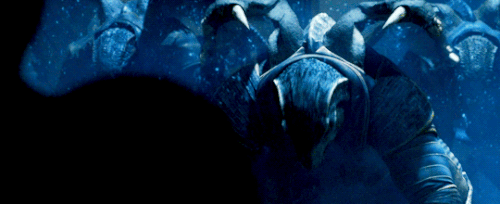
侍 headless
#broad strokes#cut-rate journalism#science fiction#the wachowskis#motherfucking lizardmen#herbertian#mila kunis#channing tatum#tuppence middleton#eddie redmayne#douglas booth#ariyon bakare#nikki amuka-bird#sean bean#movies#sci-fi#movie reviews#lizardfolk#critical analysis#writer#gnostic demonology#writing#ufo#conspiracy theory#films#cinema#gif#stuff#bleh#dragonborn
68 notes
·
View notes